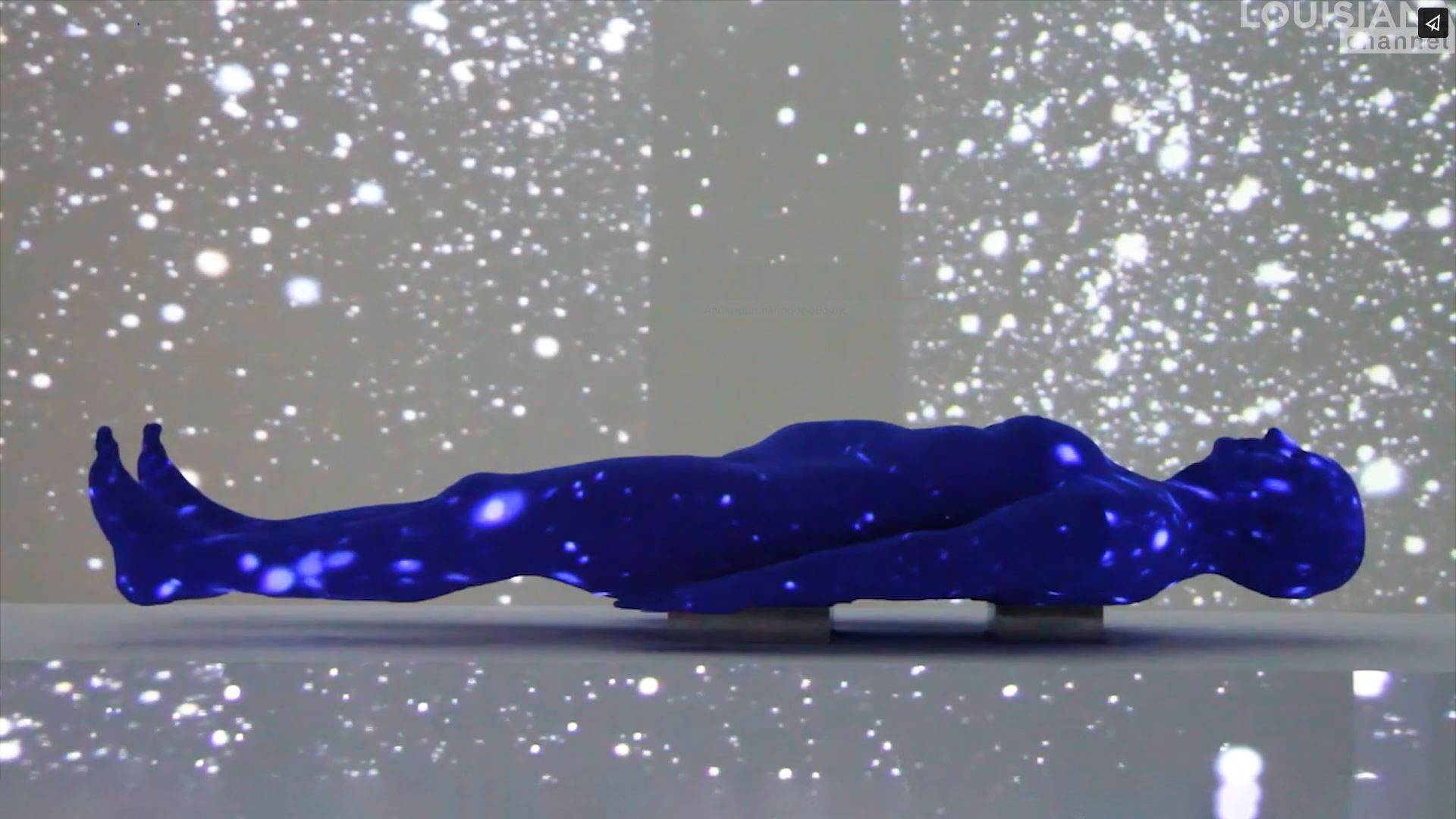VIDEO: Lita Albuquerque-We Are In Space

Meet the internationally renowned artist and writer Lita Albuquerque, who talks about her upbringing in Tunisia, the Light and Space movement, and how she tries to incorporate the sublimity of nature in her work.
At the age of 5, Albuquerque wanted desperately to be a dancer, but when her mother took her on a trip to Paris, she fell in love with theater. Later, when the family settled in the United States, she dreamt about becoming a poet. It was not until she left home at 19 to go to Europe she started painting. “I think you are an artist. You do not choose to be an artist, but you do choose what you want you to want to do with art and what field of art.”
When she returned to the United States, she was 23 and torn between acting and painting. “I was in rehearsal on stage, I was 23 playing the role of a 13-year-old, and I realized that I did not want to say someone else’s words. I wanted to say my own words. I left in the middle of the rehearsal, never returned to acting, and started painting. Then from 23 on, that was it. Painting, drawing, and then installation performance.”
That marked the beginning of an artistic career spanning over four decades thus far. In the 1970s, Albuquerque emerged as an artist in the iconic Light and Space movement. The movement grew from the dusty light of the Californian desert in the 1960s when a group of young artists started experimenting with space, light, and industrial materials.
The natural elements of the desert mimicked Albuquerque’s childhood memories growing up in Tunisia. She started doing ephemeral pigment installations in natural landscapes, dusting pigment on the raw ground, drawing lines marking and splitting the horizon, placing bright blue rocks on the earth. By the late 70s, her poetically fleeting pieces had gained her national recognition.
Since then, she has created multi-disciplinary art exploring our place as humans in an infinite space. Her work continues to interpret the abstract concept of cosmology with an ambition to bring it closer to the human body and perception.
Lita Albuquerque represented the United States at the Sixth International Cairo Biennale, where she was awarded the Biennale’s top prize. Albuquerque has also been the recipient of the following: The National Science Foundation Artist Grant Program for the artwork, Stellar Axis, which culminated in the first and largest ephemeral artwork created on that continent, three NEA Art in Public Places awards, an NEA Individual Fellowship grant, a fellowship from the Civitella Ranieri Foundation, the 2019 Laguna Art Museum Wendt Artist of the Year Award, and MOCA’s Distinguished Women in the Arts award.
Recent major exhibitions include the 2018 Art Safiental Biennial, Switzerland, Desert X 2017, 20/20: Accelerando at USC Fisher Museum of Art, and The Getty Museum’s Pacific Standard Time Performance and Public Art Festival. In 2020, Albuquerque presented major ephemeral works for Desert X AlUla, Saudi Arabia, and the Huntington Botanical Gardens and Library Centennial Celebration. Her work is in the Metropolitan Museum of Art collections, the Getty Trust, the Whitney Museum of American Art, LACMA, and MOCA. The Stellar Axis archive in the Nevada Museum of Art, Reno collection. She is on the core faculty of the Graduate Art Program at Art Center College of Design.
Marc-Christoph Wagner interviewed Lita Albuquerque in connection with the exhibition Light & Space at Copenhagen Contemporary in November 2021. Camera: Johan von Bülow, Edited by: Johan von Bülow, Produced by: Marc-Christoph Wagner, © Louisiana Museum of Modern Art, 2022. Louisiana Channel is supported by Den A.P. Møllerske Støttefond, Ny Carlsbergfondet, C.L. Davids Fond og Samling, Dreyers Fond and Fritz Hansen
